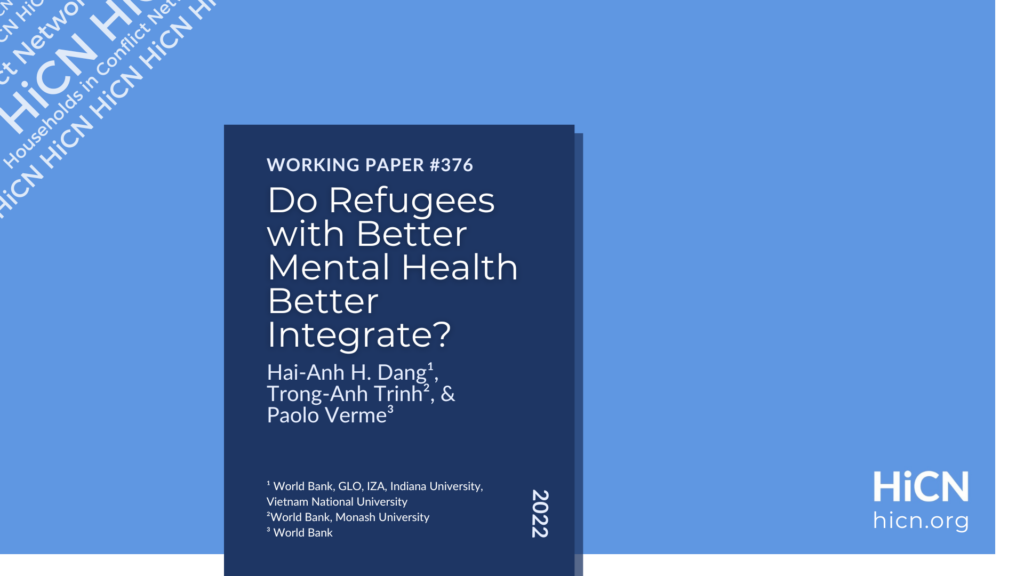
Hardly any evidence exists on the effects of mental illness on refugee labor outcomes. We offer the first study on this topic in the context of Australia, one of the host countries with the largest number of refugees per capita in the world. Analyzing the Building a New Life in Australia longitudinal survey, we exploit the variations in traumatic experiences of refugees interacted with post-resettlement time periods to causally identify the impacts of refugee mental health. We find that worse mental health, as measured by a one-standard-deviation increase in the Kessler mental health score, reduces the probability of employment by 14.1% and labor income by 26.8%. We also find some evidence of adverse impacts of refugees’ mental illness on their children’s mental health and education performance. These effects appear more pronounced for refugees that newly arrive or are without social networks, but they may be ameliorated with government support.